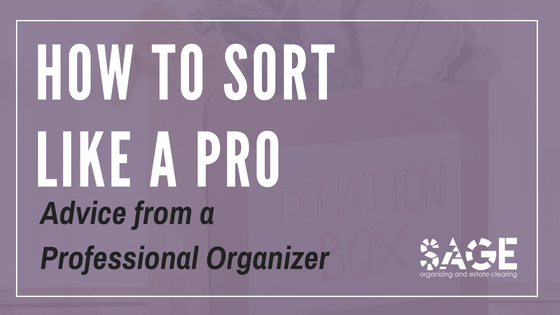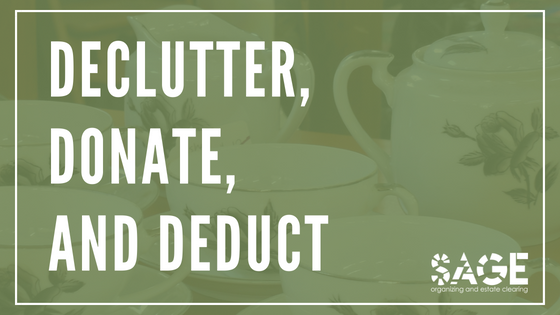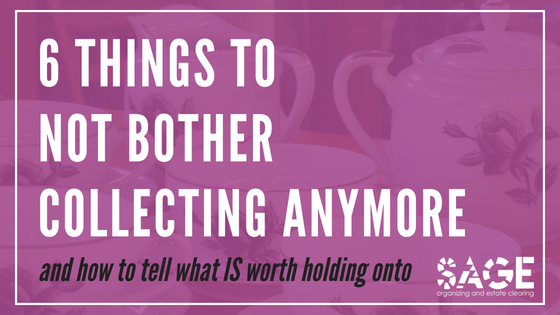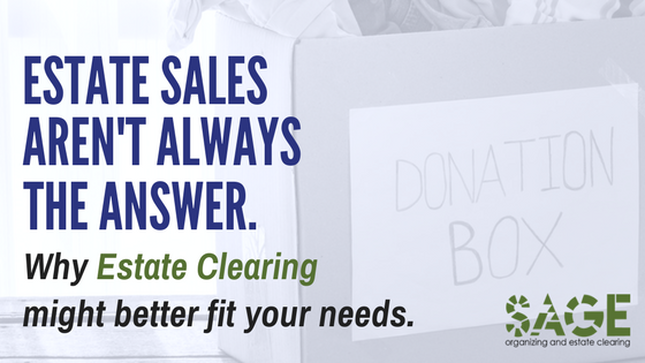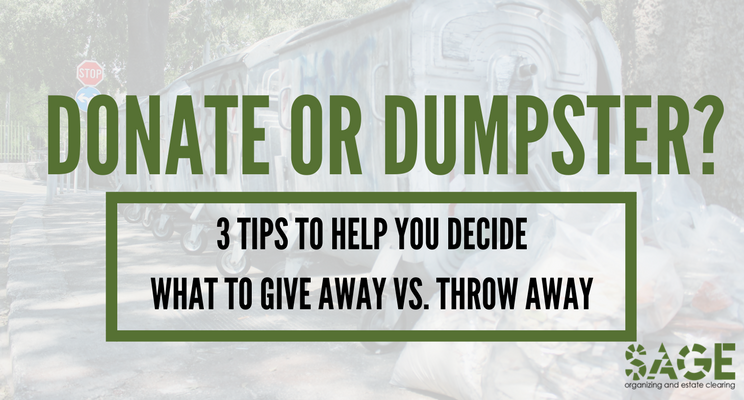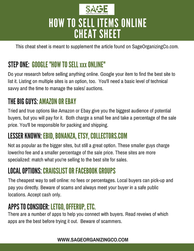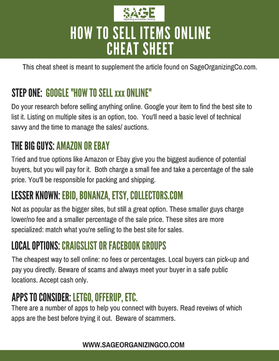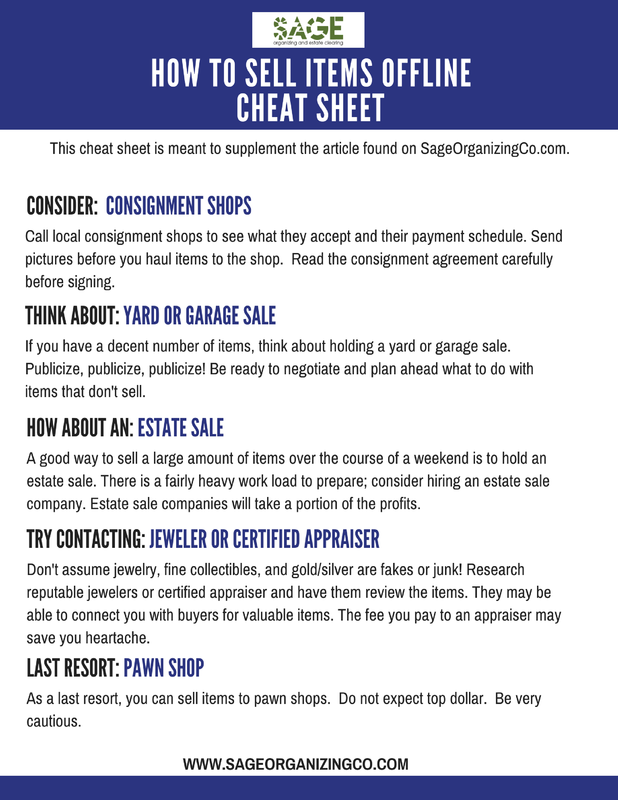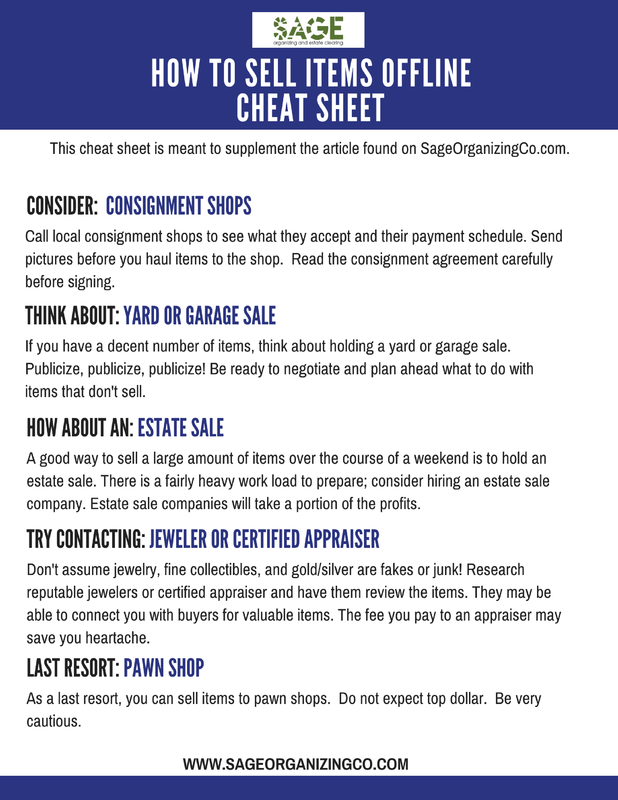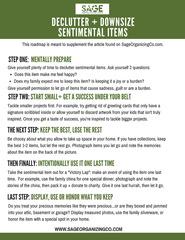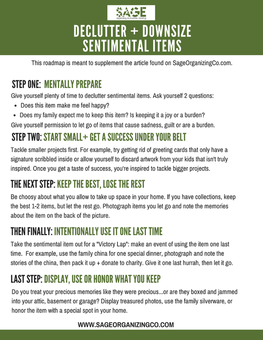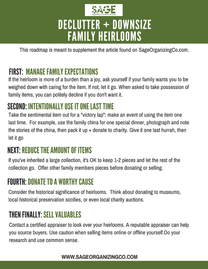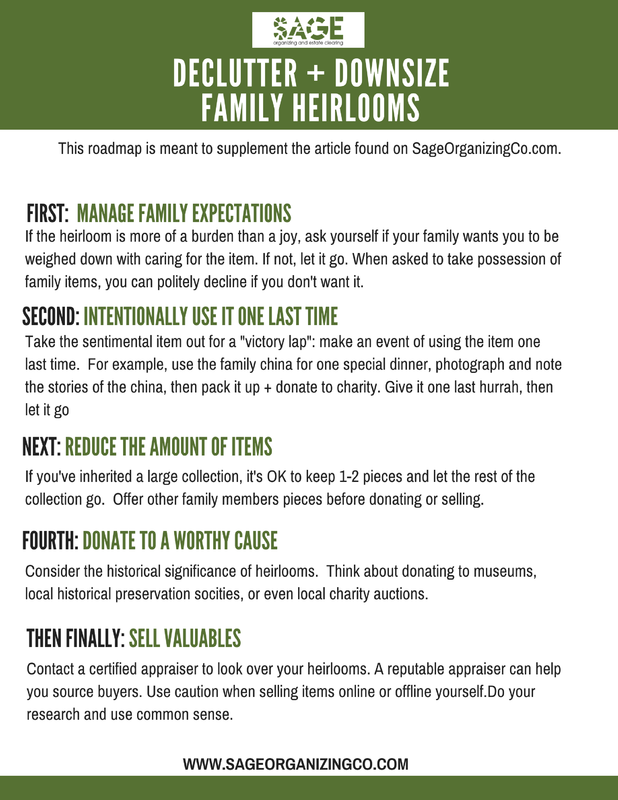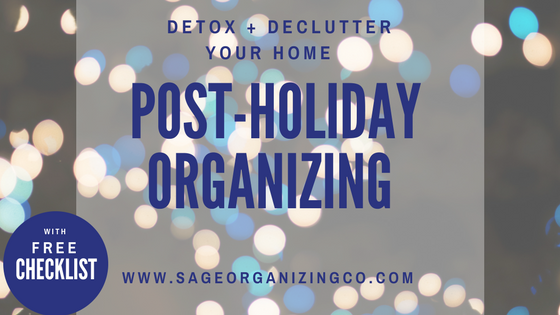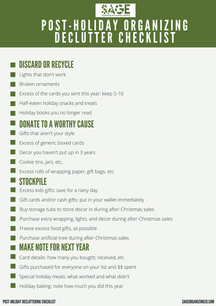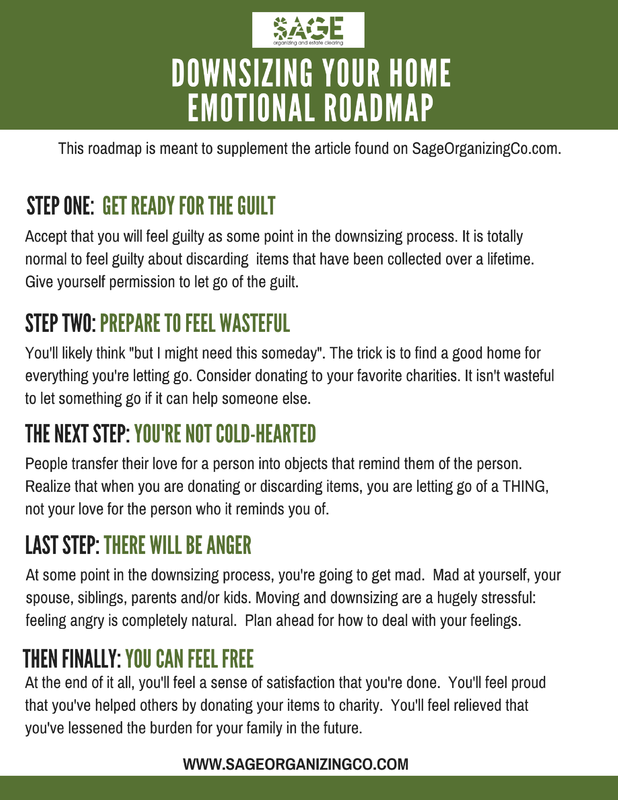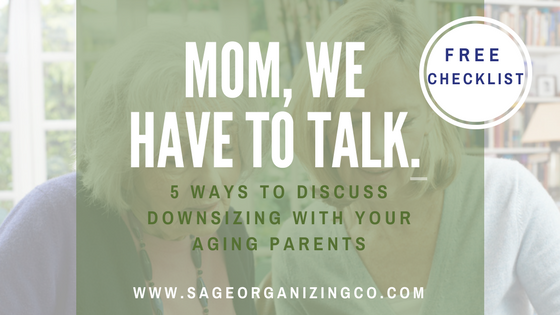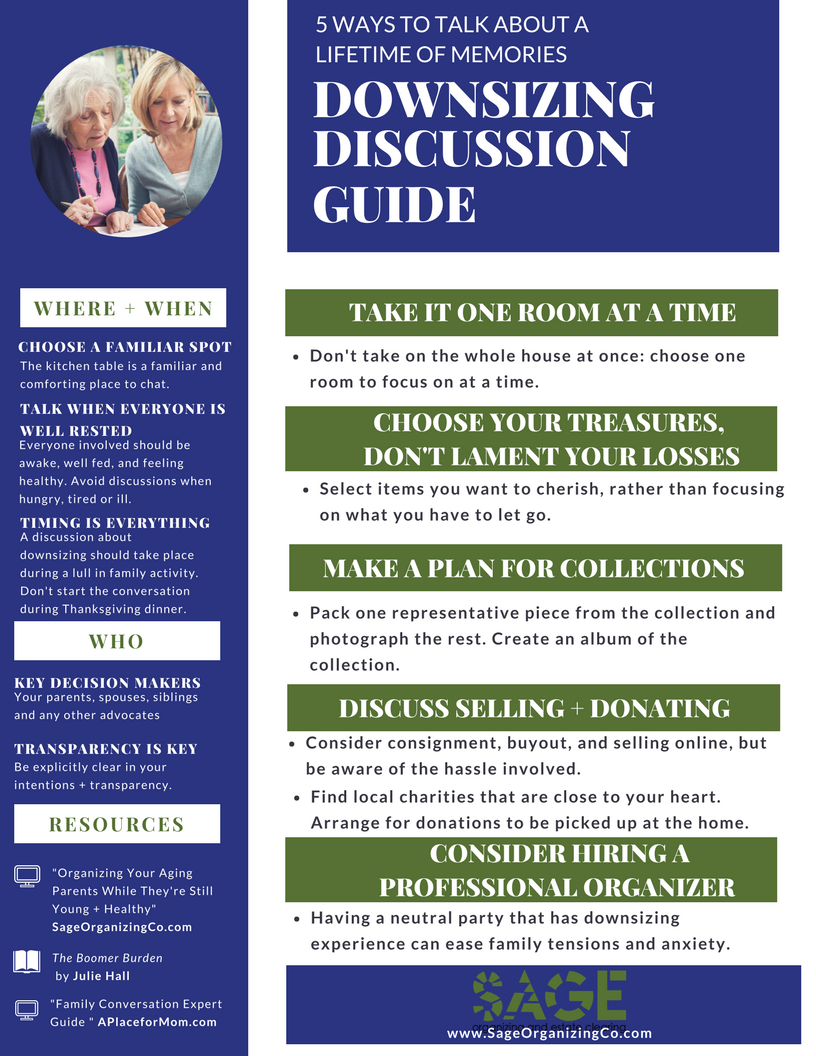|
It is a fact: in most family inheritance disputes, the only people who end up financially benefiting are the lawyers involved. But it doesn’t have to be that way! By organizing, documenting, and talking about your wishes early and often, you can solve family battles before they even begin. want to learn the 5 useful secrets for solving family inheritance disputes? read on...organize and document your wishesLong before it is necessary, start organizing and documenting your wishes. This means putting your wishes for “who gets what” in writing, preferable a legally binding will. Hire a lawyer to prepare the will, or create one yourself online at a reputable online company (such as LegalZoom). For example, if the eldest son is to inherit the family wedding ring so that he can keep it in the family, document it. Without express written decisions made in advance, family disputes can rise up. Tell your heirs your wishes so there are no unpleasant surprises after you’re gone. honor written wishesWhen a family member has passed away, the will is the legal document that has primary precedence is dividing up the remaining personal belongings, according to the law. It doesn’t matter if Grandma always told everyone that Billy should get the art collection: if it’s not in writing, it doesn’t legally count. If the deceased prepared an informal list of their wishes (or marked items with labels, as some people do) AND the heirs can agree to it, try to honor those wishes. The only people who financially benefit from estate battles are the lawyers involved. Related Articles: Sometimes You Can’t Do it on Your Own: When it’s Time to Throw in the Towel and Hire an Estate Clearing Professional to Help you Finish the Job Nobody Wants the Family Heirlooms: What to Do When it Happens to You with free Declutter +Downsize Family Heirlooms Game Plan Mom, We Have to Talk: 5 Ways to Discuss Downsizing with your Aging Parents with printable Discussion Cheat Sheet Don't remove anything from the house ahead of timeIf an ailing, aging parent remains in the home and starts “giving away” valuables or cash, the right thing to do is share that information with all the heirs. Often times the adult child who is the perceived “favorite” benefits from this: this is a sure way to cause family disputes in the future. Take the high road and disclose to other heirs what has already been given to you. After a family member passes, one of the very first things the Executor should do is change the locks to the house. This measure will prevent any neighbors, service providers, or unscrupulous heirs from “helping themselves” to belongings in the house. Nothing should be removed from the house until all the heirs can go through the home together. Always act with integrity and transparency to avoid family disputes over the belongings. immediate heirs onlyWhen it comes time for the heirs to organize and divide up the belongings, it should be the immediate heirs only. This means no spouses, children, grandchildren, or close family friends. Reducing the number of people involved will streamline the process and keep it simple. Related Articles: Help Organize Your Aging Parents (While They are Young + Healthy) with printable guide: Two Easyish Conversations to Have with Your Aging Parents Declutter, Donate, and Deduct 6 Things to Not Bother Collecting Anymore (and How to Tell What IS Worth Holding Onto) agree on a fair way to divide items equitablyBefore the heirs begin dividing up belongings, agree to a fair way to divide things up. Consider these ideas:
SummaryTake the time now to organize, document and talk about your inheritance wishes with your family. It will solve future battles before they even begin. Professional Disclaimer: The ideas, recommendations, and opinions on this website, blog, and made in person are for educational and entertainment purposes only, and should not be considered legal, financial, or medical advice. I am not an attorney, doctor, or licensed financial professional. Sage Organizing Co., LLC is not liable for any losses or damages related to actions or failure to act related to the content of this website, blog, or in-person discussions. If you need specific legal, financial, or medical advice, consult a professional in your area.
0 Comments
Whether you are organizing one room in your house or decluttering a home full of stuff, knowing how to efficiently sort is crucial to your success. Professional Organizers use the tips and tricks on this checklist to help clients, and now I'm sharing those hacks with you.
Ready to learn a professional organizer's tips for Sorting? Read on...Set yourself up for success
Before starting any organizing or decluttering job, make sure you have all the supplies you need before you get started.
Tools/ Supplies Needed:
Keep
The first step is to sort your "keepers" into a pile or one area. Keep items that you love and actively use. Items that aren't actively used should be moved into a long term storage area, such as a basement or attic.
Tools/ Supplies Needed:
*available space in actively used items *temperature variation in for long term solutions *transporting “keepers” to new location, if applicable Sell
Don't love it, but you'd like to make a little money from it? Consider selling online or offline.
Tools/Supplies Needed:
Related Articles
6 Things to Not Bother Collecting Anymore Nobody Wants Family Heirlooms: What to Do When it Happens to You. Gift These 5 Wonderful Experiences To the Ones You Love..Instead of Buying "Stuff" Donate
Have items that don't need to live with you anymore, but are still in great condition? Give to a local charity.
Tools Needed:
Discard
Some things just need to be discarded. If the items can't be sold or donated, its time for the trash/ recycling bin.
Tools Needed:
Related Articles
HOW TO DOWNSIZE YOUR HOME BEFORE MOVING 4 Smart Ideas to Sell Your Stuff Offline and 1 Really Dumb One with free printable How to Sell Items Offline Cheat Sheet 5 Tips to Sell Your Stuff Online with free printable How to Sell Items Online Cheat Sheet YOU'RE ready to sort like a pro!
Using this checklist, you now have the tools to Keep, Sell, Donate or Discard when you are decluttering and organizing.
Professional Disclaimer: The ideas, recommendations, and opinions on this website, blog, and made in person are for educational and entertainment purposes only, and should not be considered legal, financial, or medical advice. I am not an attorney, doctor, or licensed financial professional. Sage Organizing Co., LLC is not liable for any losses or damages related to actions or failure to act related to the content of this website, blog, or in-person discussions. If you need specific legal, financial, or medical advice, consult a professional in your area.
Decluttering your home and donating your items to local non-profit groups is a fantastic way to organize your home...and get a tax deduction.
Disclaimer: This information is compiled from many sources and is not intended as tax, investment, financial planning or legal advice and should not be relied upon as such. For tax, investment, financial planning or legal advice you are encouraged to consult with your personal advisers
Ready to learn how to Declutter, donate and Deduct? Read on...Declutter
When the organizing and decluttering bug strikes, separate things out to Keep, Discard, or Donate/Recycle piles.
Trying to figure out what you can easily declutter AND have it make a difference in your local community?
Donate
Before donating, be sure you are giving to an organization that is a 501 (c)(3) by the IRS. These are organizations that are recognized by the IRS as being tax-exempt by virtue of their charitable programs.
“Big name” charities (think Goodwill, Habitat for Humanity, or the Salvation Army) are no-brainers, but if you’re unsure about a group you’re thinking of giving to, you can always check their website or a site that vets non-profit groups, like Charity Navigator. Have big stuff to donate, but no truck and/or the muscles to get it done? Try the website Pick Up My Donation: they will find a non-profit group within 15 miles of your zip code and set up the pick-up, at no cost to you. Be sure you get a receipt or donation acceptance letter from the non-profit you give to. Keep a file in your glove box or console to organize on-the-go receipts, then transfer them into a permanent file in the house regularly.
Related Articles
Donate or Dumpster?: 3 Tips to Know What to Give Away vs. Throw Away 6 Things to Not Bother Collecting Anymore (and How to Tell What IS Worth Holding Onto) How to Beautifully Stage Your Home So it Sells in a Flash Deduct
Even though the standardized deduction for individuals and married couples has increased in 2018, it’s still a good idea to keep records of your charitable giving.
Keep track of what you give!
get organized and do good!
Decluttering, donating and deducting is a great way to organize your home, while making a difference in your community at the same time.
Professional Disclaimer: The ideas, recommendations, and opinions on this website, blog, and made in person are for educational and entertainment purposes only, and should not be considered legal, financial, or medical advice. I am not an attorney, doctor, or licensed financial professional. Sage Organizing Co., LLC is not liable for any losses or damages related to actions or failure to act related to the content of this website, blog, or in-person discussions. If you need specific legal, financial, or medical advice, consult a professional in your area.
Related Articles:
Sometimes You Can’t Do it on Your Own: When it’s Time to Throw in the Towel and Hire an Estate Clearing Professional to Help you Finish the Job. Nobody Wants the Family Heirlooms: What to Do When it Happens to You 5 Steps to Get Rid of Sentimental Clutter
How do you know which things in your collections have lost value over the years, and which are worth keeping? It can be tough to tell!
Items that your parents (or you) paid a lot of money for back in the day are now worth much, much less than was paid for them. An aging population has caused a heavily flooded market, making "valuables" less so. As a Professional Organizer and Estate Clearing Specialist, I see a lot of these collectibles in homes. Some are worth keeping, but unfortunately, most are not. Want to know what is worthless and how to tell the difference? Read On.
Loss in Value: Figurines and Commemorative Plates
|
|
Just for our readers, we’ve created this nifty How to Sell Your Items Online Cheat Sheet. Download and enjoy!
|
Step One: Google “How to Sell xxx Online”
You want to list your item on the site that has the biggest audience of potential buyers. For instance, if you were selling a set of golf clubs online, Ebay may be the best bet. But if you were selling custom hand-embroidered tea towels, Etsy is where you want to be. Selling antiques and collectibles often is easier on sites dedicated to those items.
The Big Guys: Ebay and Amazon
Both platforms have incredibly large audiences, thereby increasing your chances of selling your item quickly. There are fees associated with using both services, so be sure you are aware of what you are agreeing to before listing your items.
Nobody Want the Family Heirlooms
With Declutter +Downsize Family Heirlooms Game Plan
4 Smart Ideas to Sell Your Stuff Offline and 1 Really Dumb One
With How To Sell Items Offline Cheat Sheet
Sometimes You Can’t Do it on Your Own: When it’s Time to Throw in the Towel and Hire an Estate Clearing Professional to Help you Finish the Job.
Lesser Known: Ebid, Bonanza, Etsy, Collectors.com
Ebid is a site that is similar to Ebay, but doesn’t have the same amount of traffic. If you’re selling on Ebid, you’ll want to market your items elsewhere, too. On the plus side, however, EBid has lower fees than the big guys.
Bonanza is a great option for selling more unique and quirky items. Bonanza has a large audience, has no listing fee, and a low commission percentage compared to Ebay.
Collectors.com is a great option to sell your collectibles online.
Local Options: Craigslist or Facebook Groups
If you live in an area that has an active Craigslist community, try listing your item there. Photos are key to selling your items. Use common sense and caution when meeting with buyers: only accept cash and meet in public places.
If you live in a community without a lot of Craiglist action, selling your stuff in Facebook Groups is a great option. Find local Facebook groups to list your items and be sure to follow all the rules. You’ll keep all the profits of selling via Facebook
Estate Sales Aren't Always the Answer: Why Estate Clearing Might Better Fit Your Needs
5 Steps to Get Rid of Sentimental Clutter
With Declutter + Downsize Sentimental Items Game Plan
Mentally Prepare for Downsizing Your Home: 4 Tips to Control Your Emotions
With Downsizing Your Home Emotional Roadmap
Apps to Consider: Letgo, Offerup, Etc.
Apps like LetGo, OfferUp, and 5Miles, etc. are certainly options, however, many users complain about spammers, failure to show up to buy, etc. Be sure to read reviews from users before signing up for an app.
You Can Sell Your Stuff Online!
Leave a comment to let us know how your sale went!
Professional Disclaimer: The ideas, recommendations, and opinions on this website, blog, and made in person are for educational and entertainment purposes only, and should not be considered legal, financial, or medical advice. I am not an attorney, doctor, or licensed financial professional. Sage Organizing Co., LLC is not liable for any losses or damages related to actions or failure to act related to the content of this website, blog, or in-person discussions. If you need specific legal, financial, or medical advice, consult a professional in your area.
|
Download your free How to Sell Items Online Cheat Sheet here.
|
4 smart ideas to sell your stuff offline...and 1 really dumb one (with free printable cheat sheet)
3/5/2018
There are several reasons why you may choose to sell you stuff offline instead of online.
Maybe you have a huge amount of items to sell and don't want to deal with managing 100's of online sales. Perhaps the items, like furniture and antiques, are difficult to pack and ship. Or maybe the seller isn't comfortable with the technology of selling online.
READY TO LEARN THE 4 SMART IDEAS FOR SELLING YOUR STUFF OFFLINE? READ ON!
|
We are also sharing our How To Sell Items Offline Cheat Sheet with you today. Just click here to download.
|
1: Consider COnsignment Shops
Consignment shops generally are interested in good-condition furniture, antiques, and home décor. Always call the shop before hauling your items there to see if they are accepting new product. Sending pictures ahead of time is highly recommended.
If you enter into a contract with the consignment shop, they will handle the set-up, pricing and (usually) the remnants. You will receive your payment from them anywhere from 90-120 days.
Some drawbacks you may want to consider:
- You may have to haul the item to them.
- Most shops take a 40-50% commission on the item
- You may have to pick items up that don’t sell
2: Think about Yard or garage sales
There are a couple key points to having a successful yard sale:
- Advertise, advertise, advertise. Get the word out!
- Make your sale easy to shop. Organize like items together and display things neatly. No one likes to dig through boxes.
On the downside, yard sales can be a tremendous amount of set-up and tear-down work. Be ready to haggle: negotiating is part of the yard-sale culture. Be sure you have an “exit strategy” to discard or donate items that don’t sell.
Nobody Wants the Family Heirlooms: What to Do When It Happens to You
with free Declutter +Downsize Family Heirlooms Game Plan
5 Steps to Get Rid of Sentimental Clutter
including free printable game plan
3: HOw about an estate sale
Just like yard sales, it is vitally important to advertise as much as possible. The more traffic you have at your sale, the better your chances of selling things are.
Items should be displayed in an easy-to-shop way and clearly priced. Be ready to help customers haul their purchases out of the house.
Estate sales generally follow a structured price-reduction schedule (e.g. full price Friday and Saturday afternoon, 25% off Saturday night, 50%-75% on Sunday.). Be sure your customers are aware of how your sale is running to avoid problems.
4: Try contacting Jeweler or certified appraiser
Research reputable jewelers or certified personal property appraisers in your area and have them review the items. They may be able to connect you with buyers for valuable items.
Any fee you pay to an appraiser is worth saving you the heartache of accidentally throwing away a treasure.
Assess the Mess: How to Plan out Downsizing a Home
includes free printable checklist
Clutter Puts the Rage in Garage: 6 DIY Steps to Organize Your Garage
with Dream Garage Planner
The dumb idea? pawning your valuables
Chances are that an item you sell to a pawn shop will only get you 25% of the item’s value. You are far better off selling your items anywhere else. Don’t let reality TV shows give you the idea that you’ll make a great profit at a pawn shop.
Remember, if you sell your item to a pawn shop, they have the right to sell your item.
You are ready to sell your stuff offline!
Consigning, yard sales, and estate sales are a fair amount of work for you, but you’ll see cash in-hand fairly quickly.
Be sure to have a reputable jeweler or certified appraiser review items before throwing them out.
Professional Disclaimer: The ideas, recommendations, and opinions on this website, blog, and made in person are for educational and entertainment purposes only, and should not be considered legal, financial, or medical advice. I am not an attorney, doctor, or licensed financial professional. Sage Organizing Co., LLC is not liable for any losses or damages related to actions or failure to act related to the content of this website, blog, or in-person discussions. If you need specific legal, financial, or medical advice, consult a professional in your area.
|
To help you get started selling your stuff offline, we are sharing this handy cheat sheet. Enjoy, and Happy Selling!
|
Nobody Want the Family Heirlooms: What to Do When it Happens to You
with Declutter +Downsize Game Plan
Post-Organizing: Detox + Declutter Your Home After the Holidays
As an Estate Clearing Professional and Professional Organizer, I see entire rooms, closets, attics, garages, and even cars overflowing with things people can't get rid of for sentimental reasons. People are using their homes as storage facilities instead of places to actively live their lives.
In this post I'll be sharing some of my professional tips to help you get rid of some (but not all) of your sentimental clutter.
|
To help get you ready to declutter and downsize your sentimental items, I've created this free download. Enjoy!
|
Ready to get rid of some of your sentimental clutter? Keep Reading…
#1 Mentally Prepare
Take some time to think about why you are holding on to so many sentimental items. Is it because you truly treasure the item? Or does the item remind you of a person?
Remember, a thing is just a thing, not a person. Don't let your love for a Grandfather morph into love of a thing that reminds you of that him.
Ask yourself some questions as you go through items
- Does it make me feel happy? Keeping mementos of sad times or events doesn't make your life better. Let it go.
- Does my family expect me to keep this? Family expectations can be difficult to manage. Have you become the Keeper of all Historical Photos Since the Beginning of Time, but no one can identify any of the people in those pictures? Let them go.
- Is keeping it a joy or a burden? Are you excited that you have this item? Or is it more like “I guess I should keep this”? Let it go.
If you decide to let the item go, that is your choice: you do not need to announce it to your family. Just let it go.
Nobody Wants the Family Heirlooms: What to Do When It Happens to You
with free Declutter +Downsize Family Heirlooms Game Plan
Sometimes You Can’t Do it on Your Own: When it’s Time to Throw in the Towel and Hire an Estate Clearing Professional to Help you Finish the Job.
Help Organize Your Aging Parents (While They are Young + Healthy)
with free printable: Two Easy-ish Conversations to Have with Your Aging Parents
Mentally Prepare for Downsizing Your Home: 4 Tips to Control Your Emotions
with free Downsizing Your Home Emotional Roadmap
#2 Start Small: Get a success or 2 under your belt
Taken care of all the easy little things? Then move on to a little bigger (but not huge) project. Try clearing out your t-shirt drawers of all the shirts you don’t really wear, you just keep because of the sentimental memories.
How about all your old college textbooks, student directories, and papers? You may want to keep the directory, just to see the old photos, but you should be able to feel confident about donating or recycling all the books and papers. I guarantee you are not going to need your essay on post-modern theory in 19th century American literature ever again.
Remember, you don’t need to get rid of ALL your sentimental items. Just weed out the clutter so you have room for the things that truly mean something to you.
#3 Keep the Best, Lose the Rest
Having a tough time letting the collection go? Photograph the items!
What if you DO have enough room in your house to store all your sentimental clutter? There is still space in the attic! You can shove one more box underneath the stairs? Skip right on to Step #5!
#4 Intentionally Use It One Last time
Let’s say you’ve weeded out 20 old sports or concert t-shirts that you don’t need anymore, but can’t bear to discard or donate. Using the “soft goodbye”, allow yourself to wear it one last time and then instead of washing it, put it into the Goodwill bag. This lets you ease out of owning it without a blunt end.
Mom, We Have to Talk: 5 Ways to Discuss Downsizing with your Aging Parents
with free Discussion Cheat Sheet
Assess the Mess: How to Plan Out Downsizing a Home
includes free Room-by-Room Checklist
4 Smart Ideas for Selling Your Stuff Offline...and 1 Really Dumb One
with free cheat sheet
#5 Display, Use or Honor what you keep
Have tons of photos? Scan them in and set them as a slideshow on your computer. How fun is it to randomly see your 8th grade graduation photo? Put them in a pretty bowl on your coffee table for guests and family to look through and change the pictures out every couple of months.
Honor items that truly have a place in your heart by displaying them in your home. Have a ceramic bowl you made in art class in 3rd grade? Pull it out of storage and use it as a change bowl. Keeping you child's baby blanket they came home from the hospital in? Cut it into dish towels so you can use and enjoy seeing it everyday!
YOu are ready to get rid of (some, but not all) of your sentimental clutter.
Professional Disclaimer: The ideas, recommendations, and opinions on this website, blog, and made in person are for educational and entertainment purposes only, and should not be considered legal, financial, or medical advice. I am not an attorney, doctor, or licensed financial professional. Sage Organizing Co., LLC is not liable for any losses or damages related to actions or failure to act related to the content of this website, blog, or in-person discussions. If you need specific legal, financial, or medical advice, consult a professional in your area.
|
To get you started on your decluttering journey, we're sharing this Declutter + Downsize Sentimental Items Game Plan. Enjoy...and Good Luck!
|
Related Articles
with free Declutter +Downsize Family Heirlooms Game Plan
Help Organize Your Aging Parents (While They are Young + Healthy)
with free printable: Two Easy-ish Conversations to Have with Your Aging Parents
Mentally Prepare for Downsizing Your Home: 4 Tips to Control Your Emotions
with free Downsizing Your Home Emotional Roadmap
Mom, We Have to Talk: 5 Ways to Discuss Downsizing with your Aging Parents
with free Discussion Cheat Sheet
Assess the Mess: How to Plan Out Downsizing a Home
includes free Room-by-Room Checklist
As more and more of the US population ages, downsizes, and passes away there is a tremendous amount of STUFF flooding the market. Younger generations are faced with inheriting a sizable amount of family heirlooms, but their homes are already full. It seems nobody wants the family heirlooms anymore. So what can you do when it happens to you?
In this article, we'll discuss some options for what to do with the family heirlooms when nobody wants them. As a bonus for readers, we are sharing this free printable Declutter + Downsize Family Heirlooms Game Plan.
|
Click here to download the Declutter + Downsize Family Heirlooms Game Plan.
|
Want to learn what to do when nobody wants the family heirlooms? Keep Reading.
#1 Manage Family Expectations
Obviously, there are many family heirlooms that are truly treasured and gratefully accepted. However, there are also heirlooms that younger generations accept out of a sense of duty, guilt, or without even being asked if they want.
Burden vs. Joy
If you're soon-to-be-inheriting, carefully consider what you honestly want to accept. Accepting a family heirloom should be a joy, not a burden to carry. If you do not have the space for the item, respectfully decline to take it. If the item causes you emotional or financial distress, don't take it. Think of it this way: would your grandmother want you to have to pay for a storage unit so you can keep her dining room table?
The Guilt
Often times, it is guilt that forces us to take things we really don't want. Human beings have the tendency to merge their emotions for a person into the THINGS that person owned. But remember: it is just a THING, not a person. Your love for your great aunt isn't lessened because you don't want her silver tea set. You still love her...you just don't love tea sets.
Things Nobody Ever Wants
There are things that get held onto and passed down that nobody ever wants. Letters written in anger, racist antiques, and ashes of the deceased top the list. If an heirloom makes you feel sad, ashamed, or unjustly burdened, give yourself permission to get rid of it. The things that live in your house should make you feel happy.
Tacky and outdated collections are another thing nobody ever wants. Consider selling or donating items you know you will never even take out of the box.
Help Organize Your Aging Parents (While They are Young + Healthy)
Mentally Prepare for Downsizing Your Home: 4 Tips to Control Your Emotions
Declutter, Donate, and Deduct
#2 Intentionally Use It One Last Time
Another idea is to frame the heirloom and display it in your house. Baptismal gowns, old letters and recipes, photographs, and military awards all lend themselves to display in shadowboxes. Have items professionally framed to preserve them.
Perhaps one of the best ideas I've come across is giving the item a "Victory Lap". Let's say you've inherited the family wedding china...which has been packed away and sitting in your attic since you got it. Using the Victory Lap concept, you would make an event out of using it one last time.
Unpack the china and set your table with it. Invite as many family members as you can for dinner to use the china, even if it's just takeout pizza. During dinner, reminisce about the family member that owned the china and take lots of photographs. Offer each family member a place setting to take home. Pack up and donate the remaining pieces to charity. Be sure to share the photos with your family.
#3 Cut Down Collection Size
If it is a collection you'll never use or display, give yourself permission to let it go. You may feel guilty for selling or donating am family heirloom collection that a grandparent spent years building, but remember: theses are just THINGS, not a person. You still love your grandparent even if you donated their Depression glass collection.
#4 Donate to a Worthy Cause
#5 Sell Valuables
The best advice is to consult with a reputable certified appraiser. Having a professional appraiser look at your items is worth the reasonable fee they charge. Professionals can keep you from throwing away things your thought were fakes (such as jewelry) and give you an idea of what an item may be worth.
If selling items yourself, use extreme caution. Be sure to only accept cash from buyers, meet at a safe public location, and have another person with you. You can never be too careful.
- Mom, We Have to Talk: 5 Ways to Discuss Downsizing with your Aging Parents
- Assess the Mess: How to Plan out Downsizing a Home
- 4 Smart Ideas for Selling Your Stuff Offline...and 1 Really Dumb One
- Sometimes You Can’t Do it on Your Own: When it’s Time to Throw in the Towel and Hire an Estate Clearing Professional to Help you Finish the Job.
Now you have a game plan
Professional Disclaimer: The ideas, recommendations, and opinions on this website, blog, and made in person are for educational and entertainment purposes only, and should not be considered legal, financial, or medical advice. I am not an attorney, doctor, or licensed financial professional. Sage Organizing Co., LLC is not liable for any losses or damages related to actions or failure to act related to the content of this website, blog, or in-person discussions. If you need specific legal, financial, or medical advice, consult a professional in your area.
Grab a free game plan here!
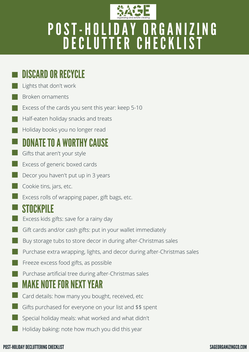
Ready to rock your post-holiday organizing? Keep reading!
Organizing for the holidays
I'm here to give you a few simple tips and tricks for getting your act organized AFTER the madness has passed.
My advice: give it a couple of days before you jump in to taking everything down and putting it away for next year. And seriously...have a little Bailey's Irish Cream in your coffee as you work. Working at a reasonable pace with a little drinky-poo in your tum tum makes the task waaaay more tolerable. #MyPersonalMotto
Decorations
Ornaments: Save your egg cartons throughout the year and store your random ornaments in them. Don't plop them all into a leftover popcorn tin, like some dummy I know once did. (Ahem: I'm the dummy. What a dang mess I made).
Interior decor: time for some Tough Love, y'all. If you haven't put it up in 3 years, donate or discard it.
There: I said it.
I get it: some of the stuff is sentimental. There are family items, wedding gifts, and stuff you bought when your kids were babies. But you DO NOT HAVE TO KEEP IT ALL. Remember: you still love your grandma even if you donate the Precious Moments Christmas figurines she gave you for your wedding.
Struggling? OK, try photographing the item, developing the picture (like...on paper!), and keep the photo. (I'll give you a tip for what to do with the photos in a bit). BOOM! Problem solved. Let the actual items go to Goodwill or the trash can.
Clutter Puts the "Rage" in Garage: 6 DIY Steps to Organize Your Garage
with free Garage Planning checklist
4 Smart Ideas for Selling Your Stuff Offline...and 1 Really Dumb One
Cards
Extras of the photo cards you sent out this year: Keep 5-10 and recycle the rest. I mean it...walk over to the recycle bin and put those extra cards in there. I'm putting my money where my mouth is: I tossed out probably 100 duplicate photo cards this year. I felt a little Grinchy, but I did not need 25 extra cards from 2012. Neither do you.
Extra generic cards that you've picked up on clearance but haven't used: Let 'em go. Keep what you HONESTLY think you will use, then donate the rest to Goodwill. Your donation will benefit someone else!
Make notes in your planner about cards ordered, sent and received. I like to note in my planner how many cards I ordered and the price each year. It makes it easier for me when ordering the following year. It truly simplifies my post-holiday organizing.
3 Ways to Organize Your Life + Time with the Erin Condren Life Planner
How I Created a Weekly Routine That Works for Our Family
with free Weekly Family Routine Checklist
Gifts
- Keepers: Put gifts away in their new homes as soon as possible. I am of the "Put it Away Right Now" camp, whereas my husband belongs to the "Let it Sit Out For Everyone to See for Weeks" ideology. I love him, but he is horribly wrong. Put it away!
- Returns or Exchanges: tape the receipt to the item immediately, because otherwise you're going to accidentally throw it away with all the wrapping paper. Put your returns and exchanges in your car so you can knock it out on the fly. Nothing worse than driving by the mall when all your returns are at home.
- Maybe Can Live Somewhere Else: Did you get a gift with no receipt that just isn't your jam? Maybe it can live somewhere else! (Big Smile). Set it aside for re-gifting or gently place it into your Goodwill bin.
- Excess Kids Gifts: Bet your kids got enough toys to last a year. It's a blessing...and a curse, right? Listen, if they are still young enough you can get away with it, stash extra gifts away for later in year. Deploy items from the Gift Stash on rainy days, "I'm bored" days, or need-a-new-distraction days.
Kitchen + Pantry
Corporate food gifts: We receive "business" food gifts throughout the season. If you do too, I'd suggest freezing whatever you can and stashing it for later. My friends and family will attest that I pull out frozen Christmas kringle and Cheryl's cookies all year long. And God Bless the wonderful companies that send us Omaha Steaks!
Clean out your pantry: After you've made it through the holidays, do a down+dirty pantry clean out. Chuck out the half-eaten bags of Christmas tree shaped pretzels, the last few pieces of peppermint bark, and the stale cookies. Get yourself ready for all the delightful kale and chia seeds you're going to eat in the new year.
The house
- Convert from cardboard boxes to plastic storage tubs. These go on sale right after the holidays, so take advantage and stock up. REMEMBER to measure the space you have available before you buy, so you don't end up with a bunch of bins that won't fit on the shelf.
- Label the bins: use masking tape or pretty removable labels to note what it inside each bin. DON'T write directly on the plastic in case you change the contents. Check out the ideas for organizing your holiday stuff on ourPinterest board.
- Take notes for next year: jot down in your planner things that worked, things that didn't, and ideas for next year.
Assess the Mess: How to Plan out Downsizing a Home
with free printable Room-by-Room Checklist
4 Smart Ideas for Selling Your Stuff Offline...and 1 Really Dumb One
You are ready to crush your post-holiday organizing + decluttering!
Professional Disclaimer: The ideas, recommendations, and opinions on this website, blog, and made in person are for educational and entertainment purposes only, and should not be considered legal, financial, or medical advice. I am not an attorney, doctor, or licensed financial professional. Sage Organizing Co., LLC is not liable for any losses or damages related to actions or failure to act related to the content of this website, blog, or in-person discussions. If you need specific legal, financial, or medical advice, consult a professional in your area.
|
Click here to download this awesome Post-Holiday Organizing Checklist.
|
Want to see how to use the Erin Condren Life Planner to get organized? Read on, my friend!
#1 Use your erin condren life planner to set-up your appointments
My advice for what to do with that gorgeous Erin Condren LifePlanner:
- Set aside a time on the weekend to write in all of your work, school and work-out commitments.
- Use my free printable Weekly Routine Checklist to make sure you've accounted for all the things.
How I Created a Weekly Routine That Works for our Family
With free Weekly Family Routine Checklist
#2 what i love about the erin condren planner
- You can choose whatever layout works for you! Each Erin Condren Life Planner is fully customizable so you have control over what your planner looks like.
- Look at this ridiculous Luxe planner! If this doesn't make you swoon, then there is something wrong with you.
- It is so pretty, but there are adult designs too, so you don't look like a sorority girl. (no disrespect to my Greek sistahs out there).
- I use my planner to organize my life, but also as a scrapbook. I tape in business cards from restaurants I've visited, little scraps of wrapping paper, and ticket stubs from events I've gone to.
#3 organize your meal plan and grocery list in your planner too.
I plan out all the meals for our family on Sundays when I'm doing the rest of the scheduling. I look at the events we have going on that week and then sketch out a plan. I love that if this is how you roll, you can
- Snap in a grocery list
- Snap in aMeal Planner.
Use your paper planner to organize your life, yo!
Do you use a paper planner?! What is your favorite thing about it? Let's hear what you have to say in the comments section!
Professional Disclaimer: The ideas, recommendations, and opinions on this website, blog, and made in person are for educational and entertainment purposes only, and should not be considered legal, financial, or medical advice. I am not an attorney, doctor, or licensed financial professional. Sage Organizing Co., LLC is not liable for any losses or damages related to actions or failure to act related to the content of this website, blog, or in-person discussions. If you need specific legal, financial, or medical advice, consult a professional in your area.
Downsizing your home can be a tough emotional road.
In this post, I’ll be sharing the 4 tips for controlling your emotions before, during and after you downsize your home. As a bonus for my subscribers, I’m sharing this Downsizing Your Home Emotional Roadmap.
Get mentally prepared: let’s talk about the emotional impact of downsizing your home. Keep Reading.
#1 You’re Going to Feel Guilty, but let it go
Whether you put the guilt on yourself or somebody else is guilt-tripping you, it still feels pretty rotten, right?
Some common guilt-isms:
- My Mom (or whoever) gave this to me, so I have to keep it.
- It was expensive, so I should get my money's worth.
- It doesn't fit anymore, but one day it might.
Remember, WHEN THE GUILT SETS IN IT IS OK TO LET IT GO. Giving yourself permission to get rid of the guilt is liberating, y'all.
#2 You’re Going to Feel Wasteful: you are not.
It was/is considered wasteful to throw things out for ANY reason. Broken appliance? It can be fixed. Leftover Cool Whip containers? Save them to store leftovers. Whole mess of gift bags after a birthday? Save them and re-use. (See...I told you).
And let's not even get started on too small/slightly damaged clothes. Oy vey.
What I'm saying is IT ISN'T WASTEFUL TO LET SOMETHING GO IF YOU FIND A GOOD HOME FOR IT. Let someone else benefit from the things you don't use or need.
- Recycle and re-use things. But think about when it makes more sense to let it go.
- Save hand-me-down clothing for a friend or neighbor. And then get it out of your house. Those size 4 jeans you'll never fit in again could make a difference in someone else's life.
- Call a homeless shelter or a battered women's shelter or an animal shelter or a food bank and ask what they need. Chances are you have things in your house right now that could be doing good for others.
Mom, We Have to Talk: 5 Ways to Discuss Downsizing with Your Aging Parents
With free Discussion Cheat Sheet
Assess the Mess: How to Plan Out Downsizing Your Home
With free Room-by-Room Checklist
Help Organize Your Aging Parents (While They are Still Young and Healthy)
With free Conversation Guide
#3 You’re Going to Feel Cold-Hearted, but remember you're still a good person
But think about it: you are letting go of a THING, not your love for the person who gave it to you.
Just because I donated the encyclopedia set that I got from my Grandmother to Goodwill, it does not mean I don't love my Grandma. I kept one of the books and let the rest go. And I still think about my Grandma every day when I see that one encyclopedia volume on my office shelves. Win-win.
Same goes with emotional souvenirs from our youth. You don't need to keep every t-shirt from every sports team and vacation and event you went to. Those are THINGS. You will still have the memories even if you don't have bins of yellow t-shirts in the attic.
Helpful tip: if you struggle to let sentimental items go, keep one or two, then photograph the rest and put the pictures in an album.
Remember, you want to separate the object from the person when you are downsizing your house.
#4 You’re Going to Feel Angry, which is super normal
Mad at yourself. Why didn't I start downsizing sooner? Why did I waste my money on this? I'm such an awful person for being mad (#guilt).
Mad at your parents. Why did they leave all this for me to deal with? What in the Hell were they thinking?
Mad at your spouse, siblings and/or kids. Why aren't they pulling their weight in helping me? Why am I doing all this?
IT IS COMPLETELY NORMAL TO FEEL ANGER. Moving (including downsizing) is one of the most stressful things you can do. It is normal and healthy to feel upset. Accept that anger is going to be a part of the process and make a plan in advance for how to handle it.
Clutter Puts the Rage in Garage: 6 Steps to DIY the Garage of Your Dreams.
With free Garage Organization Planner.
4 Smart Ideas for Selling Your Stuff Offline...and 1 Really Dumb One
#5 BUT EVENTUALLY, You’re Going to Feel So Much Lighter
Downsizing makes your feel happier because you know that you've lessened the burden on your family in the future.
Downsizing your home makes you proud because you've helped others in your community by donating things you don't need or use.
Professional Disclaimer: The ideas, recommendations, and opinions on this website, blog, and made in person are for educational and entertainment purposes only, and should not be considered legal, financial, or medical advice. I am not an attorney, doctor, or licensed financial professional. Sage Organizing Co., LLC is not liable for any losses or damages related to actions or failure to act related to the content of this website, blog, or in-person discussions. If you need specific legal, financial, or medical advice, consult a professional in your area.
YOu are mentally prepared to downsize your home.
|
You know that in addition to being a tough task physically, downsizing your home is emotionally taxing. You now have your head in the game and know what to expect when it comes to the feelings you'll have.
To help you on your journey, I've created this Downsizing Your Home Emotional Roadmap just for you! Feel free to download it now. What emotions have you experienced when moving or downsizing? Leave me a note in the comments section! |
Mom, We Have to Talk: 5 Ways to Discuss Downsizing with Your Aging Parents
With free Discussion Cheat Sheet
Assess the Mess: How to Plan Out Downsizing Your Home
With free Room-by-Room Checklist
Help Organize Your Aging Parents (While They are Still Young and Healthy)
With free Conversation Guide
HOw do you downsize A HOUSE FULL OF STUFF?
In this post, I’ll share the 5 keys to success for a downsizing project. As a bonus, I’ve created this FREE Discussion Cheat Sheet. Click to download.
Ready to Start the Discussion about Downsizing a Lifetime of Stuff? Keep Reading
#1 Take it One Room at a Time
Don’t try to downsize the whole house at once: just take it one room at a time. For the first room, choose a room that has the least amount of items in it. That way when you’ve completed that room you have a small success under your belt and it will motivate you to keep going.
Be aware and respect the fact that there is emotional weight attached to many of the items in every house. You will probably hear “that belonged to my mother/grandparent” more times than you can count. Be patient and take breaks if you start to feel frustrated.
It will take some strict self-enforcement, but as you review items, stick to Yes or No, but never Maybe. If you allow Maybes, it becomes the “dumping ground” for things that you will have to review again. Anything that is a Yes should have a specific place, purpose, or plan for the new home. A No should be separated out into Donate or Discard.
Related articles:
Assess the Mess: How to Plan out Downsizing a Home.
with free printable Room-by-Room checklist
Mentally Prepare for Downsizing Your Home: 4 Tips to Control Your Emotions
with free printable Emotional Roadmap
5 Secrets for Solving Family Inheritance Disputes
#2 Choose your treasures instead of lamenting your losses
- “Let’s choose the items you want to treasure” instead of “What can we get rid of?”. Just the simple mind-shift can ease the emotional impact. Make this your mantra.
- “Donating these items to Habitat for Humanity (or whatever charity is close to your parents’ heart) will be such a blessing to someone.” Knowing that the things in your home will benefit someone else can make it easier to let go.
To read more about Organizing Your Aging Parents, click here.
#3 Make a Plan for Collections
- “Choose your one favorite piece to treasure”. It is important to give your aging parent some control in what they want to take with them. Moving to a new home is very stressful and can make your parents feel that they aren’t in control of their own lives anymore.
- “Let’s pack this one items to take with you, and we’ll create a photo album of the other items”. Photographing treasured pieces of a collection, printing them out and creating an album is a good way to preserve the memories.
- “Let’s start gifting these legacy items now”. For example, if a family member is going to be the eventual recipient of the antique tool collection, give it to them now. If your parent knows that their wishes are being carried out, it helps with the anxiety.
#4 Make a plan for Selling or Donating
Selling items
Most families have the desire to sell some of the possessions, but aren’t sure where to start. You can try services like EBTH or estate sale companies. Always check with the Better Business Bureau and check references of any service you retain to sell your items. Some families choose to consign household items: be advised that there is quite a process involved. Another route is to list things on Craigslist, eBay, Facebook, etc., but be aware that the sheer number of items you’ll have to manage is overwhelming. The technology and selling items one-by-one is tedious and can be a barrier.
Related article: Help Organize Your Aging Parents While They Are Still Young + Healthy, includes Free Printable Checklist
Donations
Do a google search for local charities in your area to find out where you can donate items. You can find good homes for nearly all of the things in an average home. For example, local pet shelters and animal hospitals always accept sheets, towels, linens and laundry detergent. Local schools are happy to accept office supplies and food banks accept unopened food, food wrap, etc.
If your parents have collections that may have interest to a museum or school, consider donating the entire collection. For instance, a large collection of military memorabilia may find a new home in a local museum, military school, or veterans center.
Find charities that will pick-up donations at the home. Each group usually has their own guidelines about what they will and won’t accept, so take a minute to research them. Discuss with your parents whether they want to be there as items are being carried away or not.
5 Consider hiring a Professional Organizer or other estate professionals.
YOu're ready to get started downsizing.
|
Downsizing a lifetime of stuff can be an overwhelming and emotional task. Start early, be patient, and respect the emotional distress downsizing can have on your parents.
To help get you started, I’ve created this free Discussion Cheat sheet. Download and put it to good use! |
Categories
All
Back To Schoool
Before & After
Closet Organization Ideas + Hacks
Decluttering Your Home
Downsizing Your Home
Estate Clearing
Family Heirlooms
Family Schedule Logistics
Free Download
Garage DIY Organization
Garage Mudroom
Grocery Planning
Holiday Organizing
Home Organizing
Later Life Planning
Meal Planning
Mental Health
Moving
Organizing Aging Parents
Organizing Products
Selling Offline
Selling Your Stuff
Sentimental Items
Weekly Family Routine
Looking for something?
Archives
November 2023
October 2023
September 2023
April 2021
March 2021
February 2021
January 2021
December 2020
November 2020
October 2020
September 2020
August 2020
July 2020
June 2020
May 2020
April 2020
March 2020
February 2020
January 2020
December 2019
November 2019
October 2019
September 2019
May 2019
April 2019
March 2019
November 2018
October 2018
September 2018
July 2018
June 2018
May 2018
April 2018
March 2018
February 2018
January 2018
December 2017
November 2017
October 2017
September 2017
August 2017
June 2017
May 2017
April 2017
March 2017





